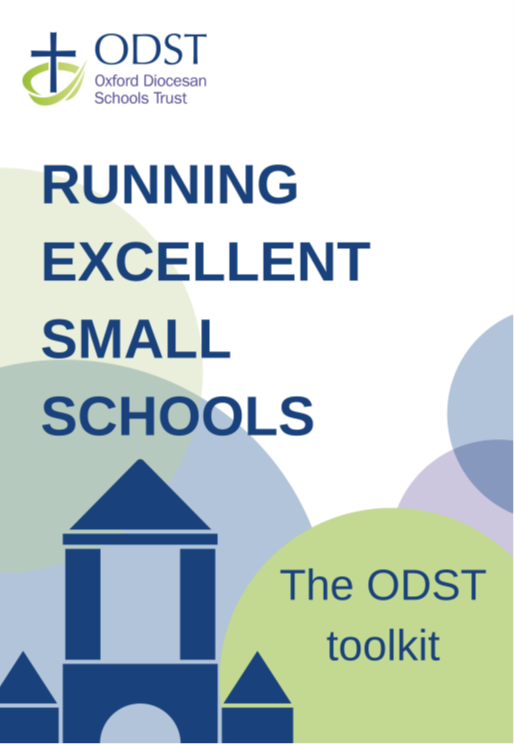Supporting small schools

With 14 schools under 150 pupils, within ODST there is significant expertise in the unique privileges and challenges that leading a small school presents. On 30 January, headteachers and chairs of governing bodies from some of our small schools met to discuss the benefits, challenges and solutions and how we can best support small schools in the future.
Discussion began around the huge positives and benefits to being a small school. Leaders enjoy that they can do whole-school activities, trips and plays, where children get to mix and play a significant part in school life every day from reception onwards. History and community is embedded. Leaders are able to implement change and ideas more quickly than in larger schools. Communication is easier with fewer people and more face to face. Leaders enjoy still being able to spend time teaching or covering classes, but this can add to their load. Small classes can be beneficial - but this impacts on school finances.
Challenges for small schools
The financial outlook is of course a challenge for all schools, and presents a particular challenge for small school leaders. One small change in staffing can impact greatly on budget, as can admission numbers. Falling rolls in small communities means a lot of pressure to increase admissions. Older buildings often need expensive maintenance or don't have space or facilities for all the activities a school wants to provide. For leaders, managing these issues reduces their time spent on managing teaching and learning. it is a 'fragile eco system’ - only takes one small thing to change to make an impact, positive or negative. Small things can become bigger quickly - ‘big ripples in a small pond’. Leaders were clear that having a strong team and support network is essential, to help them juggle and balance overload and avoid 'constant problem-solving.'
Providing staff with development opportunities is harder than in a large school since staff don’t have many peers to learn from or to plan with, so leaders need to be creative in supporting staff to grow. Leading multiple subjects can be very intense for staff, and curriculum for mixed-age classes needs careful structuring. Multi-academy trusts and the networks they provide are vital to small school staff to enable wider learning and support.
Opportunities for small schools
Many small school leaders have found important sources of support, sometimes financial, from their local communities. It is crucial they have strong links as local communities can contribute to anything from specialist music skills, transport to sports events, or places to gather. Schools can also look to increase income by sharing their resources (people, skills, facilities or space) locally. Building strong relationships can be simpler in a small comunity - a parent meet and greet, for example, or attending community events.
The group discussed ideas for the future, such as shared specialist staff such as art or PE teachers or educational psychology, or shared cover staff. Developing the role of teaching assistants and their skills is an opportunity to strengthen staff teams, as well as provide even stronger SEND support. Central support for procurement was also considered an opportunity to reduce costs and the time spent negotiating with providers.
Next steps
 Ongoing support for school leaders and governing bodies is planned, to include the ODST small schools toolkit - a series of practical ideas and questions to evaluate what strategies small schools could use, with case studies. Leaders suggested induction to support small school heads specifically, and governing body chairs were keen to see how other LGBs worked. The high level of expertise within trust is an opportunity and sharing it amongst small schools on a regular basis going forward is planned.
Ongoing support for school leaders and governing bodies is planned, to include the ODST small schools toolkit - a series of practical ideas and questions to evaluate what strategies small schools could use, with case studies. Leaders suggested induction to support small school heads specifically, and governing body chairs were keen to see how other LGBs worked. The high level of expertise within trust is an opportunity and sharing it amongst small schools on a regular basis going forward is planned.